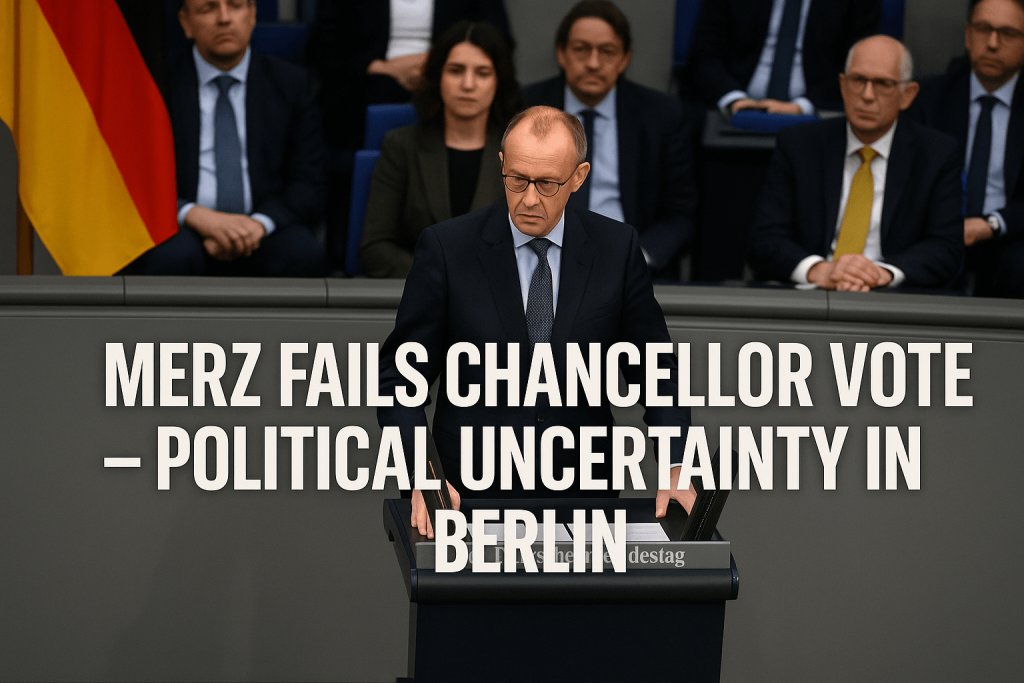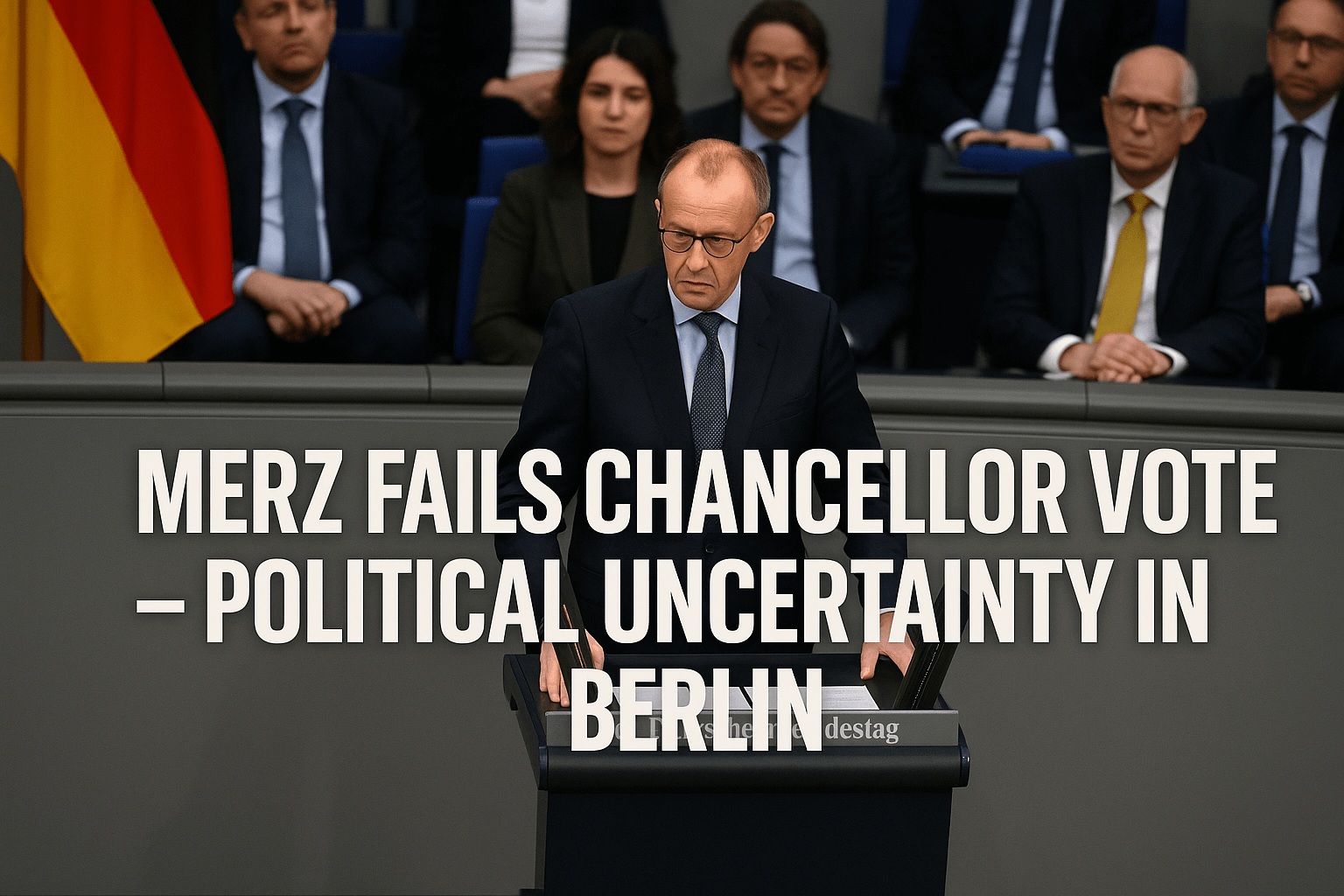Friedrich Merz Elected German Chancellor
BERLIN, GERMANY — Friedrich Merz, leader of the Christian Democratic Union (CDU), has failed in his first attempt to be elected Chancellor by Germany’s Bundestag, dealing a stunning early blow to his premiership ambitions.
Despite leading his party to victory in the February elections and securing a coalition agreement with the Social Democrats, Merz received only 310 votes in the 630-member Bundestag—falling short of the required 316-vote majority. This comes even though the CDU-SPD coalition controls 328 seats, raising questions about dissent or abstentions within the ruling alliance.
It remains unclear when the next round of voting will be scheduled. According to Germany’s constitution, if a chancellor candidate fails to gain majority support after multiple rounds, President Frank-Walter Steinmeier has the authority to either appoint another candidate or call for new elections.

The defeat represents an unprecedented political setback for Merz, 69, who had aimed to assume office this week and begin addressing Germany’s economic challenges, including sluggish growth and structural stagnation. His agenda was expected to prioritize revitalizing Europe’s largest economy.
Merz had also planned a high-profile trip to Paris on Wednesday to meet French President Emmanuel Macron, intending to reaffirm Germany’s strategic commitment to the Franco-German partnership. Those diplomatic plans are now in limbo.
The political uncertainty rattled European financial markets. Germany’s DAX index dropped by 1%, and the broader Stoxx 600 index slipped 0.5%, hitting session lows following the Bundestag vote.
As Germany faces both internal and geopolitical challenges, the failure to confirm a chancellor underscores growing political volatility and the fragility of governing coalitions.






